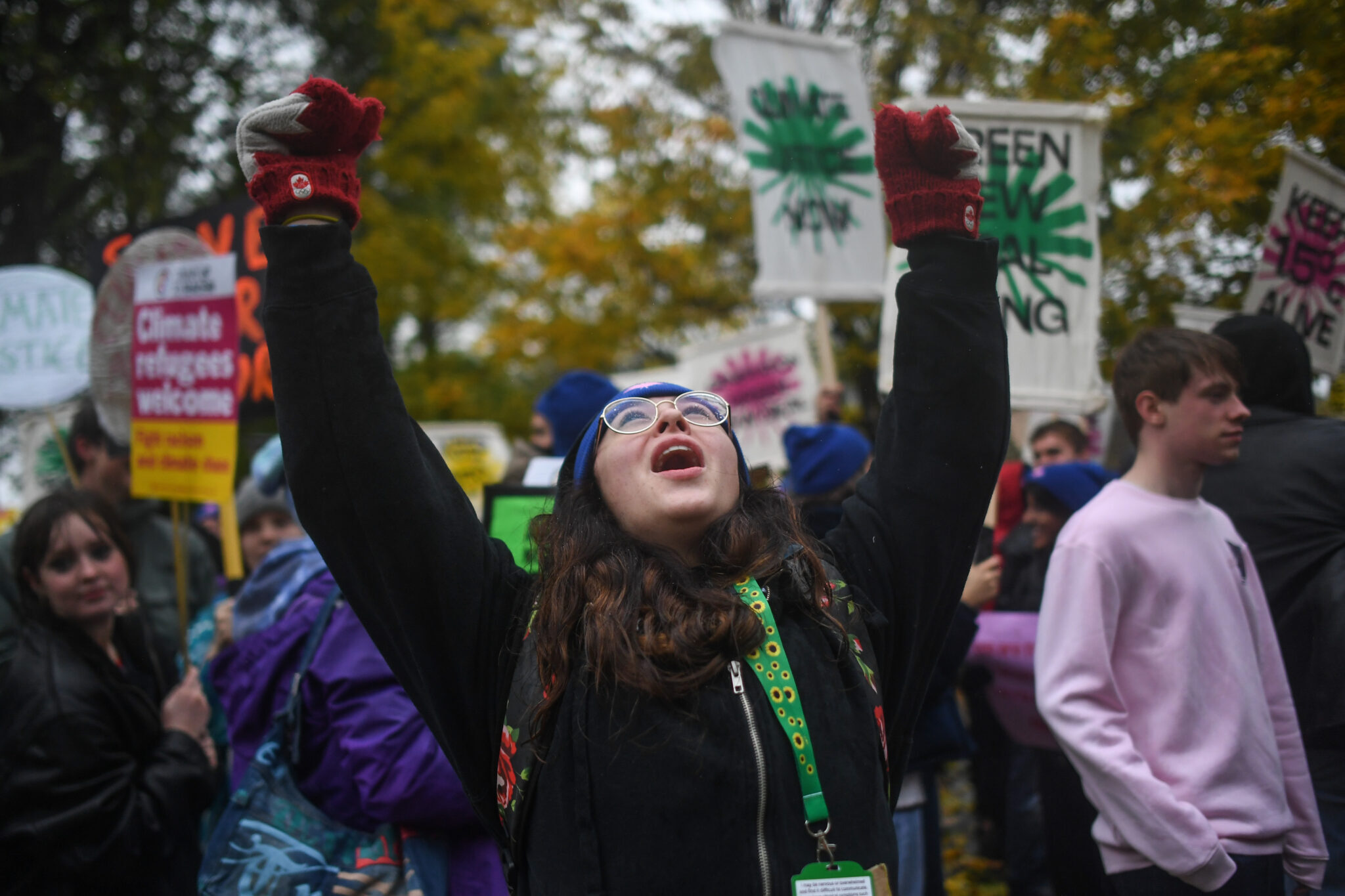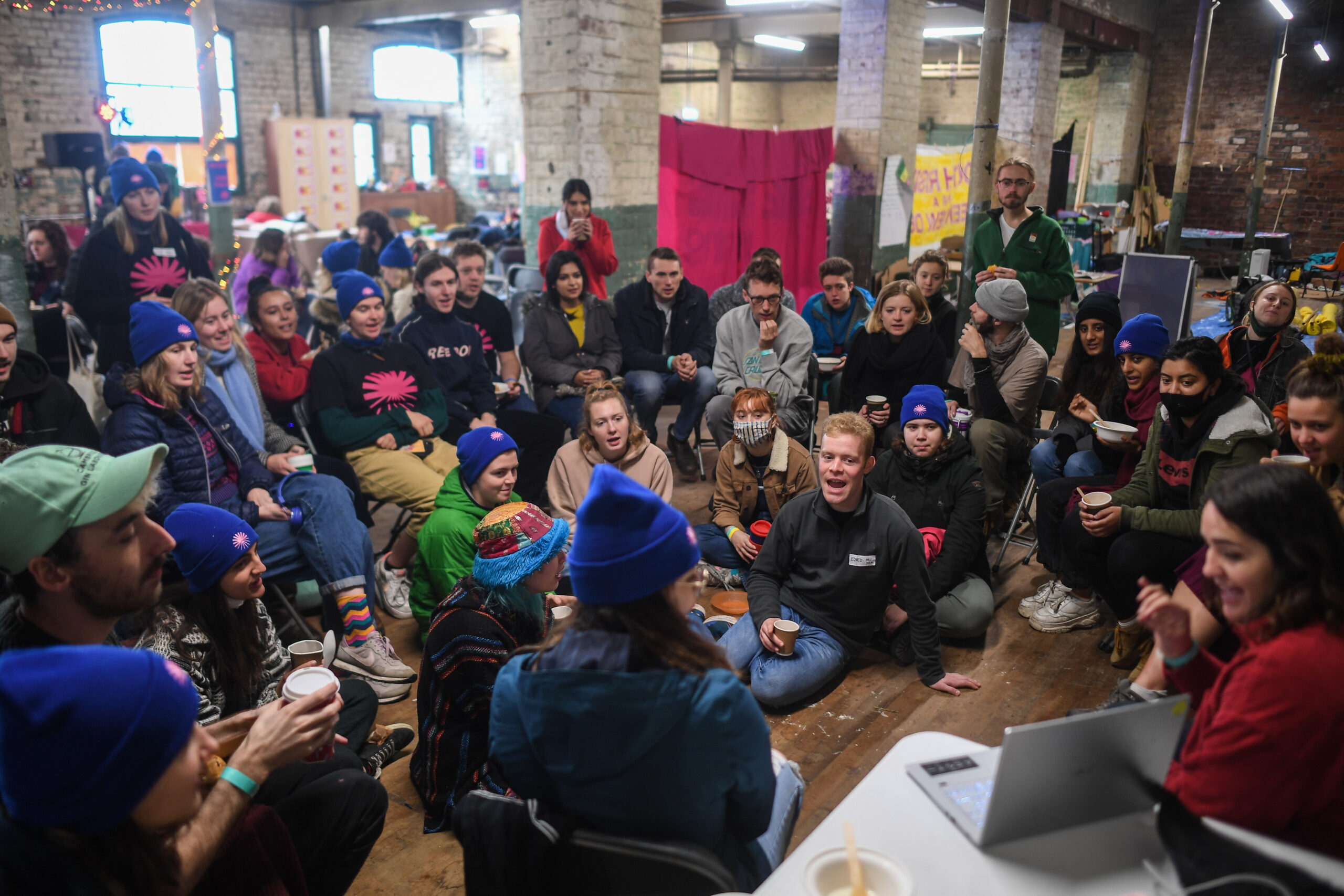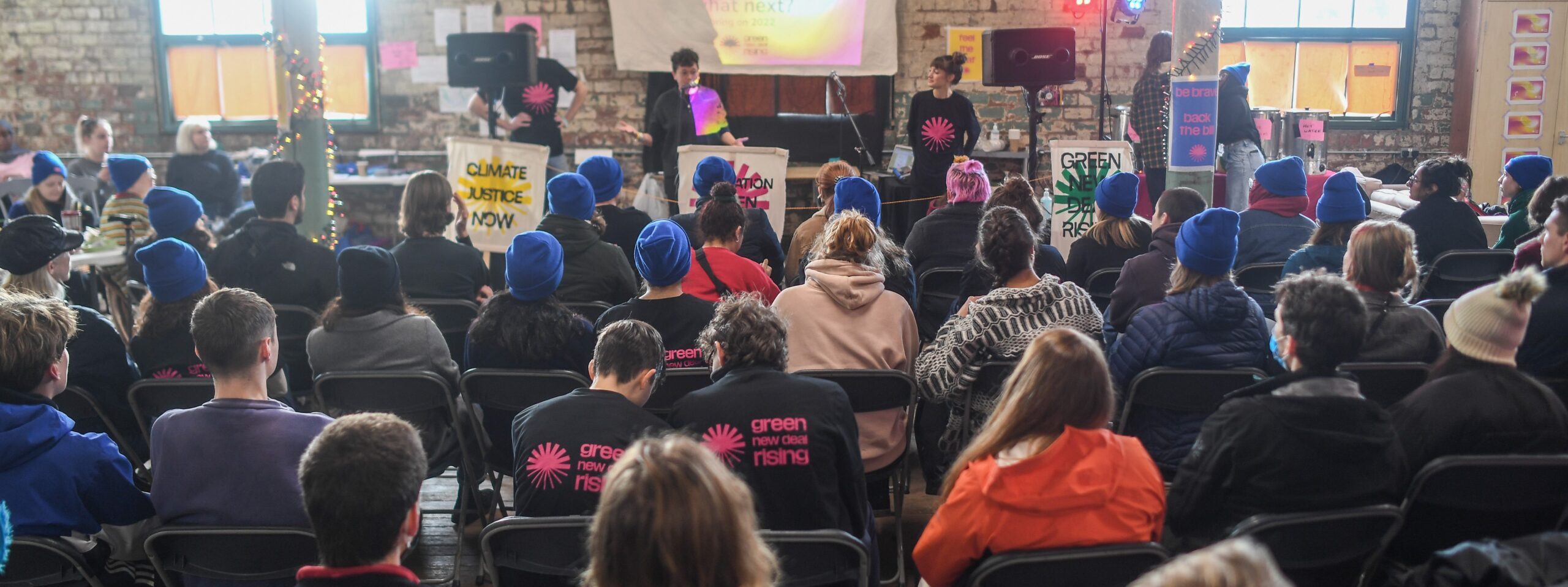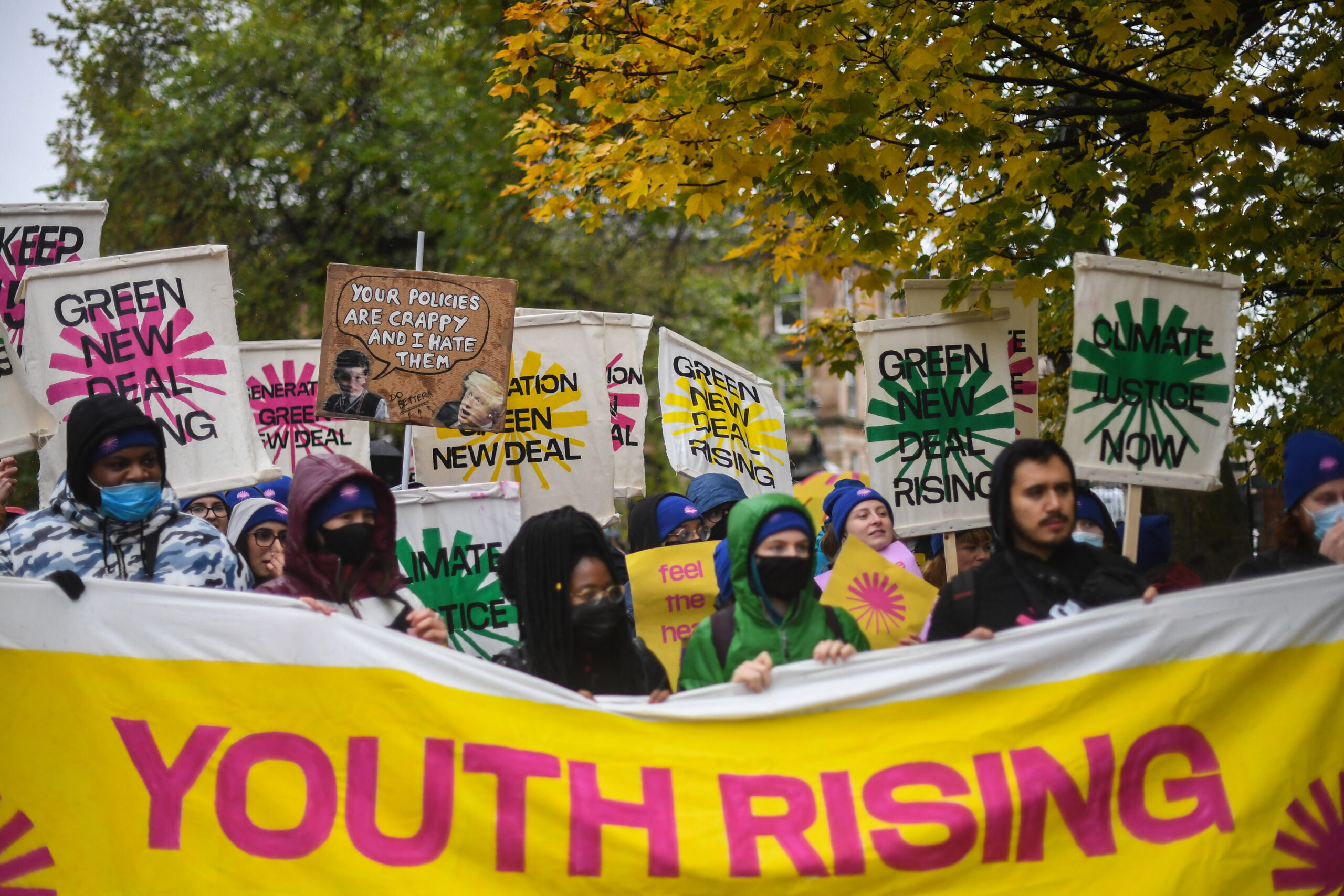Interviews
How We Do It: Green New Deal Rising share their Digital Organising approach
Our main challenge is to scale our movement to be a powerful force during an election moment, and to keep all of our organisers engaged in the meantime.
Ellen Lees | 15 Mar 2022

Image credit: Green New Deal Rising.
Tell us a little about Green New Deal Rising – how it started, and who is involved?
GND Rising is a movement of hundreds of young people from all walks of life coming together to fight for climate justice, a transformative Green New Deal, and a liveable future.
We launched in August 2021, soon after the release of the 2021 IPCC report and shortly before the UK hosted the COP26 summit in November. As young people, we recognise that time is running out to stop runaway climate change, and millions worldwide already feel its effects. Every ton of carbon we keep in the ground protects lives and livelihoods. But politicians are unwilling to drive change at the speed and scale necessary – maybe they’re scared to admit what is needed, or they’re in the pockets of those who benefit from the current crisis. It’s our job to force these politicians to pick a side out in the open – a transformative Green New Deal or climate collapse?
What role does Digital Organising play within your movement?
We use digital organising tools and tactics to recruit and engage young people in our movement and traditional ‘big organising’ tactics like barnstorms. Our volunteer teams work on specific, rinse-and-repeat tasks that they can complete online, week after week, that contribute to our success as a movement. Our MP Challenge programme is an excellent example of this – one team takes on shifts to research new challenge opportunities, while another recruits organisers from different parts of the country to take on challenges and supports them to do this. Then, once the challenge is done, another team transcribes and captions the footage to go out on social media, creating viral moments and bringing more people into the movement.

What tools and resources do you use in your day-to-day work?
We do most of our work on Slack, which functions well as an online workplace. We also use Action Network as our email sender/petition hoster/event platform/CRM, etc! We also do a lot of organising in Whatsapp groups – whether that’s regional groups used to advertise challenge opportunities or groups set up for particular events or actions, like the Kill the Bill blocs we organised for national protests in January. We’ve started using Callhub to introduce peer-to-peer phone calls and texting into our work. We also use Crisp to manage inboxes across our social media platforms and enable volunteers to recruit new organisers through social media.
Tell us about the Kill The Bill Zoom action earlier this year. How did that come about? What were the aims of the action?
This action was our first digital MP challenge – before then, we’d only done IRL challenges. We wanted to challenge Priti Patel because of her role in the horrific PSCS Bill and to call attention to the links between migrants’ rights struggles and climate justice. In the end, we chose to focus our messaging on the Bill so that our message was clear and focused. We also wanted a high-profile MP to test digital challenges on – our suspicion was that the challenge would only make for an interesting viral moment if the MP were particularly high profile.
What steps did you take to ensure your tactics were accessible and inclusive?
We assign an Action Support Volunteer to each MP challenge group to guide and support the group in doing their challenge and ensuring that everyone can participate in the action. Multiple roles are involved in a typical MP challenge, from the challengers themselves to the person behind the camera or holding placards to those who develop the script and scope the venue in advance. An online challenge is very accessible and can be done from the comfort of your own home! We held a debrief after the Priti Patel action and checked in with the challengers afterwards because there was a lot of unpleasant rhetoric at the meeting. It’s always a shock to be in spaces with people with such different world views, and in particular, such disregard for the suffering of others.
What have you learned from the action, and how will this inform your future efforts?
Online MP challenges are possible and can create viral moments if done right. We’ll try more online challenges in the future when the conditions are right! We’ve also learned that our organisers and audience are enthusiastic about this action and keen to join next time. There’s loads of potential for more significant and more disruptive action in the future.

How do you aim to adapt and build your digital organising in the near future?
We’re developing a digital canvassing tactic to allow people to reach out to online communities and have persuasive conversations about the Green New Deal. This is very new, and we’re still experimenting with the tactic and different forms it can take. Our main challenge is to scale our movement to the point where we can be a powerful force during a potential election moment and keep all of our organisers engaged and taking helpful action (digital or otherwise).

One of your principles is, “We honour our history and unite with other movements.” How does this show up in your tactics, and how would you recommend others incorporate it?
In January, we mobilised a bloc at the Kill the Bill march in London and had groups of organisers in other cities across the country at other marches. We’re keen to draw links between the connected issues of social justice, racial justice and climate justice and to show up for movements fighting in these spaces when we can.